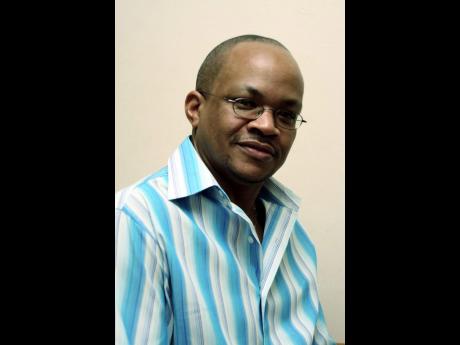Abortion, women and their bodies
Minister of Youth and Culture, Lisa Hanna, is under fire for comments that she recently made supporting the repeal of Jamaica's abortion laws. Her statements have earned her a 'Letter of The Day' in The Gleaner demanding that she be stripped of her youth portfolio, in addition to other negative comments and condemnations, and may have prompted a recently published open letter from Father Richard Ho Lung (this one more civil than his last commentary on her).
Abortion is a contentious issue. The concept of terminating a pregnancy is disturbing to many, and strident and passionate opposition to it are understandable. However, I believe that it is time for the topic to be discussed rationally and objectively at a national level, without emotional outbursts, religious bias and judgmental attitudes towards the women who may request it.
One has to admit that the law, instituted in 1864, is rather archaic. Under the law, abortion is only permissible to save a woman's life or to preserve her physical or mental health. Also, the spouse's consent is required. The prescribed punishment for anyone performing or even attempting the procedure is life imprisonment. This applies to the pregnant woman also. In addition, it is also illegal to procure instruments with the intention of performing an abortion or to transport someone to a location with the intention of getting an abortion done.
Before meaningful discourse can proceed, certain misconceptions about abortion must be clarified. Many persons speak of the fetus being able to feel pain during an abortion and of the procedure being murderous and barbaric. But it does not have to be this way. By 12 weeks after a missed period, all the fetal organs have been formed, but if the procedure is carried out five weeks after a woman misses her period, there is not even a fetus or a heartbeat. The procedure is not necessarily traumatic. Not every woman is emotionally scarred after having an abortion. And the procedure is performed much more commonly than people realize. It is very unlikely that I will go through an entire day at work and not encounter at least one woman who has had an aborted pregnancy.
As an obstetrician and gynaecologist, I firmly believe in women's empowerment and that a woman has a right to make informed decisions about her own body. It is her body. It is not her spouse's. It is not the church's. And it is certainly not the state's.
The current abortion laws do not permit abortion for economic or social reasons. However, the definition of health includes "physical, mental and social well-being", and carrying a pregnancy when in dire financial straits and in difficult social circumstances, such as being unemployed and in an abusive relationship, can impact negatively on a woman's overall health.
The existence of laws prohibiting abortion places women, the children that they may deliver and the society at risk. Because of these laws, there is no organized training or monitoring regarding the procedure, and practitioners often take short cuts and provide substandard care, with deleterious and even fatal consequences.
While working at a public hospital in the 1990s, I saw probably every complication one could get from improperly performed abortions; incomplete procedures, uterine perforations, haemorrhage, severe pelvic infections, bowel injury and death.
During my first week at my present location, I saw two women who almost died because they were not properly investigated before undergoing the procedure. They visited practitioners who evacuated their wombs and sent them home, not knowing that the pregnancies were in fact in their Fallopian tubes (ectopic pregnancies). The tubes ruptured, resulting in severe life-threatening internal haemorrhage, necessitating emergency surgery.
More recently, I saw two women who were given tablets to insert into their vaginas to terminate their pregnancies. No follow-up visits were organized. They bled and assumed that the pregnancies were gone, only to present themselves at my office and realize that they were still pregnant and may be carrying fetuses affected by the drugs.
When children are born to persons who are ill-equipped to parent, they often suffer, becoming dysfunctional adults who, in turn, raise dysfunctional children, and the cycle continues. We live in a very poor country (where poverty is reportedly increasing) with high unemployment, crime and murder rates. Having unplanned and unwanted children increases the burden on our society. Street children, juvenile crime and child labour and prostitution are often the sequelae of such pregnancies.
This is not to say that abortion is a silver bullet that will cure all of our societal ills. It is not to be used as a primary method of birth control, and the importance of effective family planning cannot be overemphasized. Our citizens must be responsible and avoid undesired pregnancies in the first place. But when pregnancy prevention fails, as it does even with some responsible persons, other options should be made available.
Ms Hanna should not be vilified for her statements. We should look at the context in which she made her remarks and be honest and realistic about our situation. It is hypocritical for us to complain about our social and economic state and then demonize someone who is suggesting a move that has the potential to provide our society with long term benefits. I fully endorse Ms Hanna's views on the current abortion laws and I stand firmly and resolutely with her on this issue.
- Michael Abrahams is a gynaecologist and obstetrician, comedian and poet. Email feedback to columns@gleanerjm.com and michabe_1999@hotmail.com, or tweet @mikeyabrahams.

